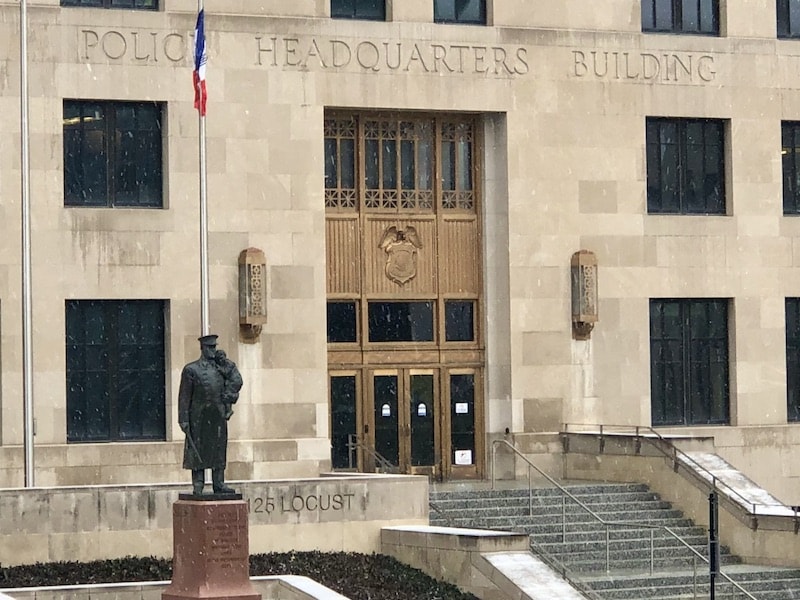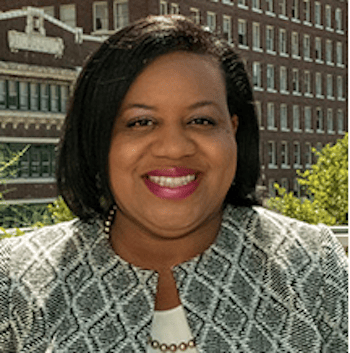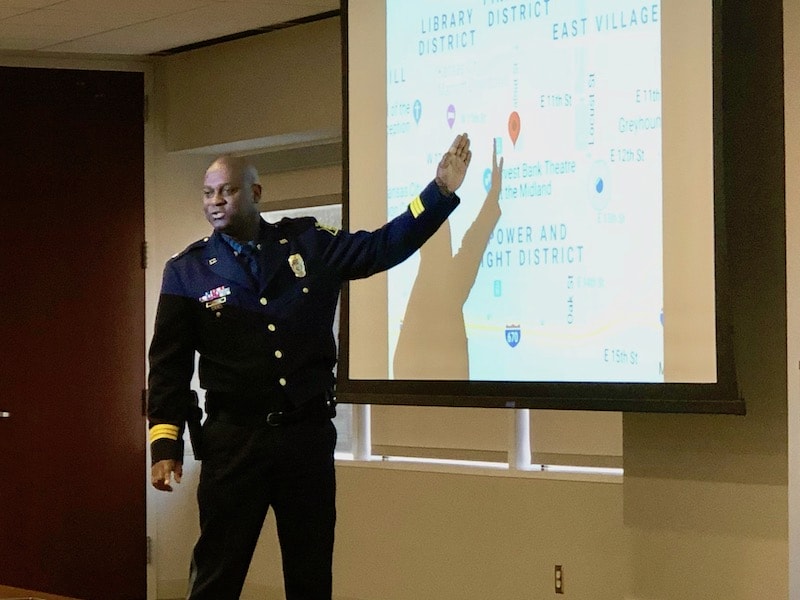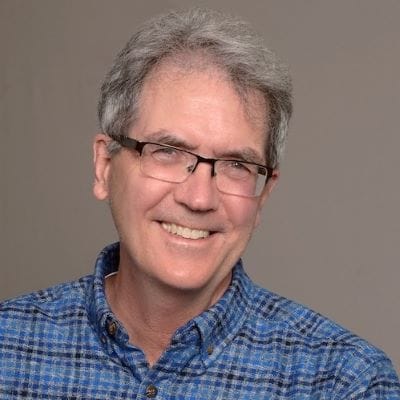Council Committee Wants Mayor to Appoint Panel to Study Local Police Control

Published January 23rd, 2020 at 1:15 PM
By Kevin Collison
The controversial issue of whether the Kansas City Police Department should be returned to local control got an hour-long hearing Wednesday at City Hall, but a recommendation was postponed until next week.
The majority of the Council Finance, Governance and Public Safety Committee appeared to support a resolution by Councilwoman Melissa Robinson to research the pros and cons of local control, but decided it was not a task for interim City Manager Earnest Rouse.
“I don’t think the city manager is the person to weigh in on this, particularly when we have an interim city manager,” said Committee Chairwoman Katheryn Shields.
Instead, the committee intends to ask Mayor Quinton Lucas to appoint a commission to explore the local police control proposal. Members voted to delay voting on her resolution for one week to discuss the commission plan with the mayor.
“I think the study should happen, I just want it in front of the right people,” said Councilman Kevin McManus.
“That will give us the information we need that we’re comfortable with.”
If the full Council goes along with the idea, it would be the second time in recent years a commission has been appointed to study local control. A panel appointed by Mayor Sly James in 2013 narrowly recommended against the concept.

Kansas City Councilwoman Melissa Robinson (Photo from City Hall website)
Kansas City is the only major American city with a police department not run directly by city elected representatives.
For many years, both the St. Louis and Kansas City police departments were run by a commission appointed by the governor, but St. Louis had local control returned in 2013.
In early November, Robinson introduced her resolution asking the city manager to determine whether returning the department to local control, it’s been run by a state-appointed board since 1939, can help reduce the city’s soaring crime rate.
Kansas City reported 151 homicides last year and has been among the top 10 cities in the nation in murders per capita. The city’s overall violent crime rate was 316.7 percent above the national average, according to a report in CityRating.com.
During public testimony, representatives of the Kansas City Police Department and the Fraternal Order of Police, the police union, opposed the resolution.
Deputy Police Chief Karl Oakman, who represented Chief Rick Smith, said having the governor appoint four of the five police commissioners removes the board from politics. The fifth commissioner is the mayor.
“As a result, decisions are made in the best interest of the police department and the community, not as a result of political deals,” Oakman said.
I also had heard earlier about the unique system of governance must somehow be a source of the homicide rate in our city.
“The other nine cities on the list of the nation’s 10 most dangerous cities have local political control that has done nothing to abate the violence in their communities.”

KCPD Deputy Chief Karl Oakman briefed the Downtown Council on the downtown crime situation last September after three murders occurred in August.
Brad Lemon, president of the police union, said the city should focus on building a new jail and increasing the number of officers rather than consider local control, which he described as “smoke and mirrors.”
“Local control is not the answer at this point, we have a lot of issues out there to deal with, jail issues, manpower issues, but what we don’t have is a leadership issue,” Lemon said.
“We have not had a problem with the chief telling us what to do and where to go.”
In a related matter, Shields questioned Lemon about proposed state legislation that would end the requirement for police officers to live in the city where they work.
Lemon said the proposal originally was introduced to cover only St. Louis police, but has since been expanded to include ending residency requirements statewide.
When pressed by Shields about whether Kansas City police support ending the residency requirement, Lemon said that policy change is “overwhelmingly” supported by police union members throughout Missouri, and he would support what the membership wanted.
Shields said the City Council strongly supports keeping the requirement that city employees and police live in the city. She added it also figured in to the conversation about returning police to local control.
“When you’re talking about something like home rule where we are the only police department in the state of Missouri that’s not controlled locally, I think the issue of residency becomes more critical,” she said.
“Your’e talking about then the last connection that are police officers have with this city other than receiving a paycheck.”
Karl Zobrist, a former police commissioner from 2000- to 2010, said the fact Kansas City is the only city in the nation with a department run by a state-appointed commission made it a “best practice.”
“We’ve got a good department and I believe the governance is solid,” he said.
About a dozen other people testified, most of them supporting the proposal to research local control. A letter by former Councilman Alvin Brooks, who also was a police officer, also was submitted in support of the Robinson resolution.
Rabbi Doug Alpert of Congregation Kol Ami said bringing the department under local control would help build trust between the police and the community.
“The simple truth is I trust you guys far more than I trust our governor and legislators to have oversight and appoint responsible Kansas Citians from all parts of the city to make decisions regarding our police,” he said.
That theme of having police accountable to locally-elected officials was picked up by another minister, Dr. Stephen Jones, pastor of First Baptist Church.
“I don’t have a voice, because you do not have a voice,” Jones told the Council members.
“Only one person controls our city’s police department and that’s the governor of our state who appoints the police board.
“Our current governor is a kindly, affable gentleman from Oliver who appears to have little understanding of the urban complexities that our police face here in Kansas City.
“We can’t be the only city…in America in which the taxpayers have no voice in the operation of the police department and you cannot be the only City Council in America that has no voice in police affairs. It’s undemocratic.”
Janae “Justice” Gatson pointed out the police department represents the largest portion of the city budget.
“The people of this city that employ the police officers say we want local control, we want accountability,” she said.
“When I tell folks we don’t have control of about $270 million of our taxpayer dollars, that’s a problem.”
(Editor’s note: Beginning in December 2019, CityScene KC has become a paid subscription publication)


